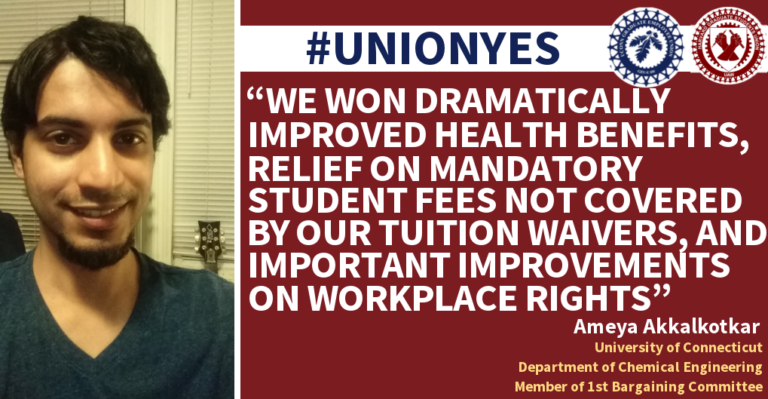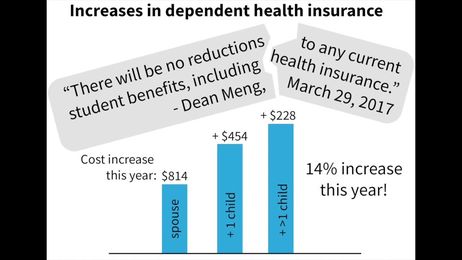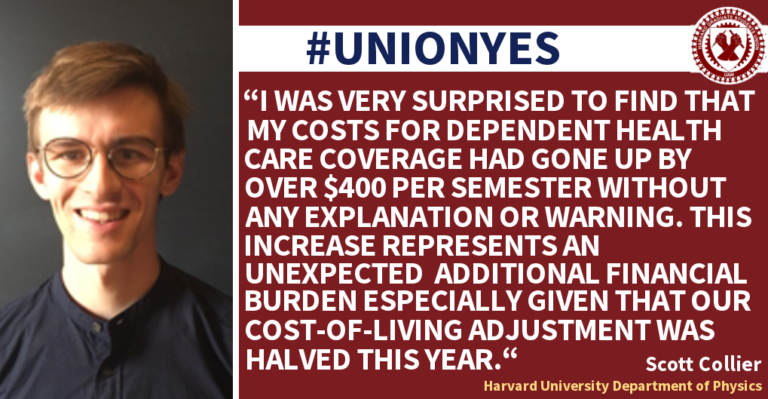Why we voted #unionYES
Enhancing our focus on quality teaching and research
On April 18 and 19, we have an exciting opportunity to strengthen the community of researchers and teachers we have built by voting yes for our union, HGSU-UAW. As part of a growing national movement of student workers, we have already shown the power of coming together by taking on the travel ban and by mobilizing to stop the tax on tuition waivers. Together, we can make meaningful changes in our lives, in our universities and in our communities.
But we have also seen that without collective bargaining, Harvard administrators can make sudden, disruptive changes to our work life right here on campus, like last year when they cut our typical pay increase in half and increased the cost of key healthcare provisions. Harvard’s ability to change our working conditions unilaterally adds to the stress and uncertainty of the graduate experience. With collective bargaining, we can negotiate a contract that not only improves our pay and benefits and expands protections against problems like discrimination and sexual harassment, but also ensures the security and stability that enables our best work. With the continuity of an organized union, we can project our voices beyond the campus and build a more connected community within it.





